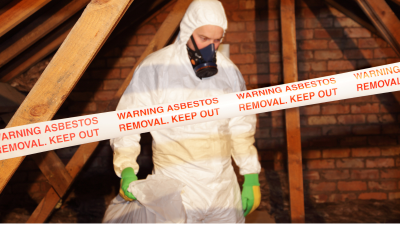On World Cancer Day, trade unions are calling on European Commission President Ursula von der Leyen to finally deliver on her promise of legislation to better protect workers from asbestos-ridden buildings.
According to EU data, between 4 and 7 million workers across the EU are exposed to asbestos and mesothelioma, which is caused by exposure to asbestos fibres, accounts for 40% of work-related cancers.
President von der Leyen announced in 2022 that she would propose a directive on screening, registration and monitoring of asbestos in buildings. A public consultation was held and the Commission was due to adopt a directive in the second quarter of 2023, but it has still not done so.
‘Driver of mortality’
The delay of more than 18 months comes despite the fact that the latest EU data shows that cases of work-related mesothelioma have increased by 10%.
A European Commission report published yesterday warned “occupational exposure is a large driver of mortality, accounting for 6% of cancer deaths in the EU in 2021” and that there are “strong inequalities in cancer mortality…with rates remaining highest in low-income countries, among persons with lower levels of education and among men.”
The Commission screened and removed the asbestos from its Berlaymont headquarters in 1996.
Giulio Romani, Confederal Secretary of the European Trade Union Confederation, said:
“Millions of people are still being unnecessarily and unknowingly exposed to potentially deadly asbestos fibres at work every day in Europe. Builders, firefighters or office workers who have gone to work to make a living and instead had their lives cruelly cut short by cancer.
“This European Commission has already made exposure limits safer, but it knows it can do more to prevent working people from contracting asbestos-related cancer, which is why it promised to bring forward a directive on the screening, registration and monitoring of asbestos in buildings.
“That’s why on World Cancer Day, I call again on President von der Leyen to end the delay over this lifesaving directive and finally deliver on the promise she made to ensure that the buildings people are working in are safe, just as the Commission did to its own offices in the 1990s.
“The Commission’s own cancer report shows occupational cancer is still a serious threat and disproportionately affects the poorest and most vulnerable. Their lives should not be sacrificed on the altar of deregulation. Ensuring people are safe and healthy at work is good for competitiveness, as well as the fundamentally right thing to do.”

